| کد مقاله | کد نشریه | سال انتشار | مقاله انگلیسی | نسخه تمام متن |
|---|---|---|---|---|
| 4269830 | 1610860 | 2014 | 13 صفحه PDF | دانلود رایگان |
IntroductionDyspareunia and vaginismus are the most common sexual pain disorders (SPDs). Literature suggests that many women with dyspareunia continue with intercourse despite pain (task persistence), whereas many women with vaginismus avoid penetrative activities that may cause pain (fear avoidance). Both forms of sexual pain behavior may maintain or aggravate complaints.AimThis study examined (i) whether women with SPD differ from pain‐free controls in motives for sexual intercourse, sexual autonomy, maladaptive beliefs regarding vaginal penetration, and partner responses to pain; and (ii) which of these factors best predict whether women with SPD stop or continue painful intercourse (attempts).MethodsWomen with superficial dyspareunia (n = 50), women with lifelong vaginismus (n = 20), and pain‐free controls (n = 45) completed questionnaires.Main Outcome MeasuresFor Aim 1, the main outcome measures were (i) motives for intercourse; (ii) sexual autonomy; (iii) maladaptive beliefs regarding vaginal penetration; and (iv) partner responses to pain. For Aim 2, sexual pain behavior (to continue or discontinue with painful intercourse) was the outcome measure.Results(i) Women with dyspareunia exhibited more mate guarding and duty/pressure motives for intercourse and were less sexually autonomous than controls. (ii) Symptomatic women had more maladaptive penetration‐related beliefs than controls, with women with vaginismus reporting the strongest maladaptive beliefs. (iii) Partners of women with dyspareunia self‐reported more negative responses to pain than those of women with vaginismus. (iv) The factors that best predicted sexual pain behavior were the partner responses to pain and the woman's maladaptive beliefs regarding vaginal penetration.ConclusionsOur findings reveal support for task persistence in women with dyspareunia and fear avoidance in women with lifelong vaginismus. As such, it is important to consider these distinct types of responding to sexual pain when treating SPD. Brauer M, Lakeman M, van Lunsen R, and Laan E. Predictors of task‐persistent and fear‐avoiding behaviors in women with sexual pain disorders. J Sex Med 2014;11:3051–3063.
Journal: The Journal of Sexual Medicine - Volume 11, Issue 12, December 2014, Pages 3051–3063
